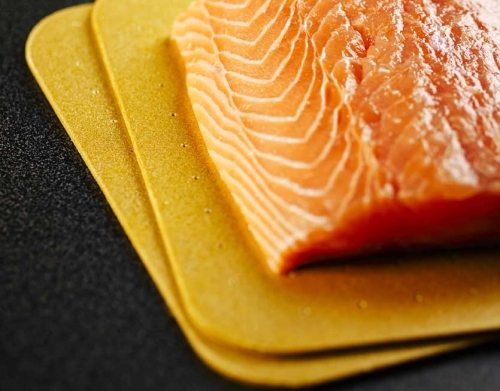LINPAC Packaging introduces LINslice, an absorbent expanded polystyrene (EPS) base ideally suited to products such as sliced smoked salmon and pre-cooked meats. Micro-perforations have been created within the base to absorb any unsightly juices that can contain bacteria and lead to spoilage of the meat.
They ensure that the premium look and feel of the pack is maintained to encourage sales.
“Numerous studies have shown that consumers are willing to pay more for meat and fish that looks fresh and appetizing,” says director of innovation Alan Davey.
“Appearance is one of the most important characteristics by which consumers judge the quality of such products and so it has to be packed in such a way that its quality appearance is retained for as long as possible.
“A pack that contains meat juices is often overlooked by consumers and left on the shelf either because they generally don’t like to see it or because they are concerned about packs leaking into their bags and on to other food items.”
“The LINslice base locks any juices away within the pack itself, offering hygienic and attractive product presentation for retailers.”
LINslice has been developed to work with both horizontal form-fill-seal and vacuum bagging applications.
In addition, the EPS board is stable under all conditions of moisture and temperature, unlike the carton board.
Besides improving presentation and visual appearance of the packs, the board can often give rise to an increased shelf life by a day or two.
As EPS is made up of 95% air, LINslice is lightweight and has low carbon footprint.
The base is available in various colors and sizes to boost consumer appeal and is a food safe, environmentally strong, alternative to laminated papers and board.










